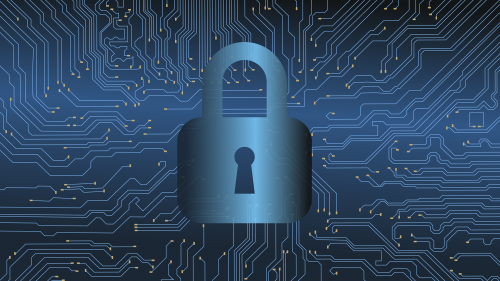6 Things Startups Need to Know About Cybersecurity-Business2Business
Failure to take a proactive and comprehensive approach to protecting your data and systems early in the startup journey could result in the loss of contracts an
- by B2B Desk 2020-12-15 06:07:46
In addition to financial costs, businesses can lose intellectual property, personal data, hours of productivity, and consumer confidence. Worse still, companies often don't even think about cybersecurity until it's too late.
Failure to take a proactive and comprehensive approach to protecting your data and systems early in the startup journey could result in the loss of contracts and the interruption of your growth. If you want to quickly scale your B2B SaaS business, you can't afford to get around data security concerns. Otherwise, you inhibit growth and leave money on the table when potential customers dismiss you as "high risk."
Startups are a particularly vulnerable target, as they may think they are too small to be attacked (they aren't) or they don't prioritize security, putting your data at risk. Often times, founders only have a security on their radar after the breach or when a prospect or customer asks about it.
Still, they may think they are covered because they maintain a policy spreadsheet, use the cloud, or do not store personally identifiable information or sensitive information. But this mindset creates loopholes that can open doors for hackers looking for easy access to sensitive data, regardless of the size or small business of the company. Fortunately, there are steps you can take right now to protect your business.
Think about security from the start
Businesses, especially B2B SaaS startups looking to sell their software, need to think about application security from the outset. It may not seem like a priority when there are insurance financing and market access products. But implementing security controls in your codebase early on will save you an incredible amount of money and time as your business begins to expand. Ask your developers to use OWASP (Open Web Application Security Project), which focuses on software security to create protection and security in your organization.
Document everything related to security
When you start to focus on security and make plans to manage your business data, document everything you do. Keep track of your standards and policies, the methods you used, your implementation plan, and any modifications, and do all of this before the violation or issue forces you to do so.
Documenting your security measures will not only allow you to scale faster, it will also give you an advantage when selling to businesses, as you can quickly and easily answer security questions from customers. Once buyers or auditors look at your security controls, they will want to see your policies and procedures, and it won't look good if you don't have any. Having this information will also help you enter more regulated regions like the European Union or industries with high privacy compliance, like healthcare.
Define the roles and responsibilities of your team
It is not enough to know that someone in top management is "good at security." If you don't already have a safety kit, put one in place. Also, don't leave your security responsibilities to the CTO. Make sure everyone understands their role in maintaining data privacy and security systems.
Hold safety meetings with your team and train everyone on safety awareness, even if that just gives people free resources. Do this during the early days of your business, so you have a culture of safety from the start and don't have a hard time building a team when it suddenly becomes necessary.
Know your standards and regulations
Do you know what regional or industrial frameworks, standards or regulations your company must follow? For example, do you need to comply with SOC 2, ISO 2700, GDPR, or HIPAA? Knowing the standards you'll need to adapt your security practices early on will not only help you stick to the correct protocols, but when questions come up later in vendor contracts or surveys, you'll know how to answer them.
If you are unsure, consider implementing CIS Critical Security Controls (CSC) from the Center for Internet Security, which is a set of core standards designed to cover the most important cybersecurity issues for many types of businesses. The last thing you want is for your startup to catch the organizer's attention because you're complying.
Strong Security Leads to Healthy Growth
Insufficient or insecure implementation will hurt your startup. Enterprise companies prefer to work with vendors who know they care about security and will not be a liability in the future. Insufficient security can prevent you from entering different markets and regions, and can also elevate you to regulators.
However, sticking to security from the start will build confidence in companies that want to do business with you. This can become a hallmark of your business, which can lead to sales with larger, more successful companies.
This will be difficult to do later, so don't wait
It would only be more difficult and expensive if you wait until you scale to implement security compliance, training, and protocols. With more customers, more employees, more assets, and more technology, trying to fine-tune your systems to adhere to security frameworks - or worse yet, having to rewrite source code - will cost you time, money, resources, and even trust. of its partners and customers. You don't want to discover the company culture and habits you identified early on that conflict with the security measures necessary to attract customers to your organization and increase revenue. A little work at the beginning goes a long way.
Companies that hold vendors accountable for security practices will only benefit the industry, as more and more companies protect themselves from constant threats from hackers. Startups must not only implement plans to protect customer data, they can also grow their business by adopting a security mindset.
As you scale your startup, consider creating a culture of security awareness and enforcement, which means recognizing the value of protecting the data your business collects. It is never too early to start the process, but there may come a time when it is too late.
Also Read: New rule for cheque payments from January 1: Everything you need to know
POPULAR POSTS
Pine Labs IPO 2025: Listing Date, Grey Market Premium, and Expert Outlook
by Shan, 2025-11-05 09:57:07
India’s Largest Unicorn Startups in 2025: Rankings, Valuations, and Trends
by Shan, 2025-09-18 10:32:48
Swiggy Launches Toing App in Pune to Serve Affordable Food Delivery — What It Means for the Market
by Shan, 2025-09-16 12:29:08
Trending Startup Ideas for 2025: Where Innovation Meets Opportunity
by Shan, 2025-09-05 11:56:43
19 Best Business Ideas to Start in India 2025: From Low Investment to High Demand
by Shan, 2025-09-03 10:58:15
Razorpay Business Model Explained: How the Fintech Giant Makes Money in India
by Shan, 2025-08-05 12:10:28
How CRED Reimagined Credit Card Rewards into a Billion-Dollar Fintech Empire
by Shan, 2025-08-04 12:28:03
RECENTLY PUBLISHED

Loan EMIs to Drop as RBI Slashes Repo Rate - Full MPC December 2025 Highlights
- by Shan, 2025-12-05 11:49:44

The Agentic Revolution: Why Salesforce Is Betting Its Future on AI Agents
- by Shan, 2025-11-05 10:29:23

Top 10 Insurance Companies in India 2026: Life, Health, and General Insurance Leaders Explained
- by Shan, 2025-10-30 10:06:42

OpenAI Offers ChatGPT Go Free in India: What’s Behind This Big AI Giveaway?
- by Shan, 2025-10-28 12:19:11

Best Silver Investment Platforms for 2025: From CFDs to Digital Vaults Explained
- by Shan, 2025-10-23 12:22:46





 Subscribe now
Subscribe now 